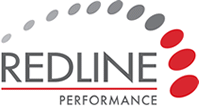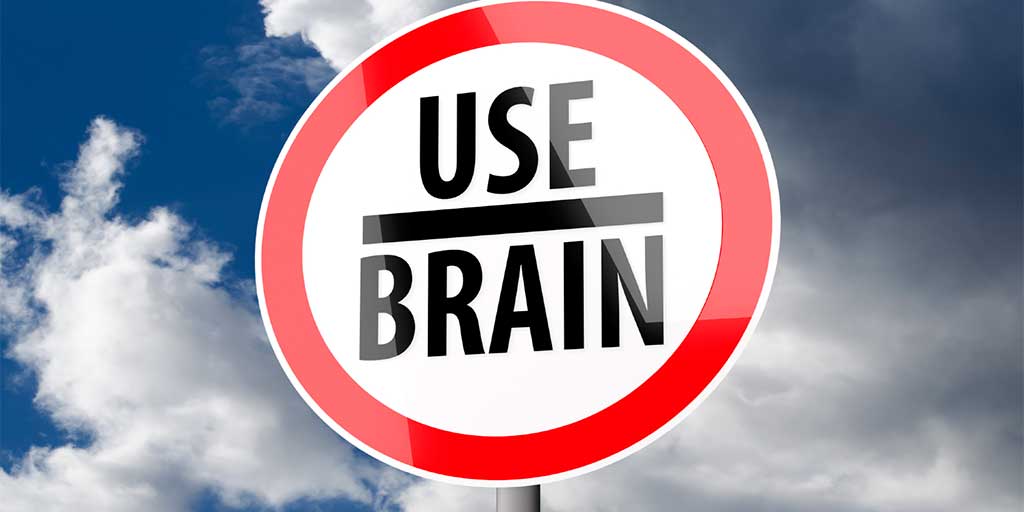A salesperson who seeks first to understand, before seeking to be understood is starting the process of building a consultative relationship, whilst avoiding the pitfalls of arrogantly appearing to ‘know it all’ and lecture the customer on what he/she thinks the customer should buy. This basic dynamic in behaviour is, of course, the key difference between ‘selling things to’ people and getting them to want to buy from us.
So if you understand the importance of gathering information about your customer, before you attempt to ‘pitch’ a solution, you will appreciate just how vital it is to go about that task using all the faculties of your brain: not just inquisitiveness, persistence, empathy, attentive listening and good preparation, but also some robust ‘critical thinking’.
What is Critical Thinking? In its purest form, it is an intellectual discipline used by researchers and academics to interrogate information and data to ensure that all assumptions, errors, preconceptions and misinterpretations are eliminated and conclusions are drawn, or decisions made, based on a factually correct evidence base. Ultimately, for academics, it is a tool to achieve the goal of handling information with clarity, accuracy, precision, consistency, relevance, sound evidence, good reasons, depth, breadth, and fairness.
Why is this important for salespeople, and how can we adapt this academic approach to the practical world of business? In short, it comes down to adopting the right mind-set.
All of us, in varying degrees, are vulnerable to our own conditioning: our previous experiences, our own personal views, our emotional attachments to certain types of customer or business, or our prejudices, often without consciously realising it. We will make unconscious assumptions and judgements, or accept certain ideas uncritically. The more of an ‘expert’ we think we are in our markets, the higher the risk that we submit to confirmation bias – that is, we only seek or hear the information we want to hear, because it fits in with our own vision of the situation or process. Asking the hard questions that might lead to the ‘wrong’ answers is not that easily done.
For example, we might easily assume that the client’s Finance Director will be giving the final approval for spending budget. One individual customer contact may have hinted at or even told us this. Later, when it turns out that isn’t the case at all, and the Managing Director, previously uninvolved, steps in to make a final decision, we’ll be asking ourselves how we missed that. Did that one customer contact lie? Or did they themselves not understand the internal process? Perhaps they genuinely thought that to be the case, but we never checked it.
So what’s the critical thinking process?
- Gather ALL the necessary information/data
- Assess and validate the information properly
- Create a range of valid choices
- Decide – exercising sound commercial judgement
It’s not as easy as it looks. Every piece of information we gather needs to be validated critically. That means, in simple terms, asking yourself the hard questions about the source of the information, it’s relevance, its accuracy and so on. It also means being prepared to ask the customer deeper, probing questions that might reveal underlying nuances or assumptions, prejudices or misconceptions.
A good way of starting to think more critically is to consider how modern satellite navigation systems work. The ability of your Garmin or TomTom device to accurately pin-point your location is dependent on a process known as ‘triangulation’. If the satnav device can only connect to a single satellite, its accuracy is limited to about 10 metres on the ground. If, however, your device can connect to at least three different satellites at once, it can accurately plot your position on the earth’s surface down to one metre.
Apply this concept to the way that you assess and validate the information that clients tell you. Who or what is the source of this information? Why might they be telling me this? What hidden agendas might exist? What assumptions are they making? Who else holds the same views and can give me a different perspective? How can I test the validity or truth of this information? Am I just hearing what I want to hear?
It’s a bit of a cliché that we ‘don’t know what we don’t know’ – but it is nonetheless an endemic flaw in a lot of selling processes. Constantly testing our assumptions and bias, pushing ourselves further towards critical validation will mean we can eliminate a lot of the don’t knows and in the process, often help the customer to come to better conclusions about their business as well. That’s precious, because it is part of how a great salesperson adds more value to the relationships they build.

